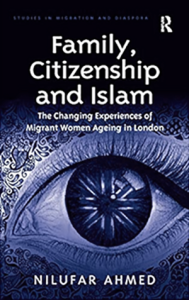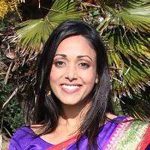Family, Citizenship and Islam: The Changing Experiences of Migrant Women Ageing in London

Author: Nilufar Ahmed
Publisher: Routledge
Year of Publication: 2016
Print Length: 264 pages
Genre: Non-Fiction / Geography; Social Science
Topic: Migrants, Migration, Bangladeshi, Religion, Islam, Muslim, Age and Generation, Gender, Woman and Femininity, Man and Masculinity, Belonging, Identity, Care, Children & Childhood, Widowhood, Parenting & Grandparenthing, Family, Friendship & Companionship, Love, Marriage, Wellbeing, Community, Culture & Society, Housing, Citizenship, Media & Narratives, Mobility & Immobility, Mosque / Masjid, The Muslim World, Lived Experience
A longitudinal, intersectional study of migrant women, this book examines the lives of first generation Bangladeshi migrants to the UK, considering the dynamic relationship between people and place. Shedding new light on a migrant population about which little is known, the author explores the experiences of women who left rural homes to live in London, speaking no English, with no experience of local customs and having to adjust to what would now be dramatically shrunken family sizes, within which they would act as bearers of culture and tradition.
Based on research spanning a decade Family, Citizenship and Islam draws on qualitative interviews with over 100 women and examines questions of identity, belonging, citizenship and Britishness, religion, ageing, care, and the family. With attention to the fluidity of the experiences of the first generation of migration women, the book offers an alternative to much ethnographic research, which often offers only a ‘snapshot’ of a particular minority or migrant group as fixed and preserved in time. As such, Family, Citizenship and Islam will appeal to scholars of sociology, geography and anthropology with interests in migration and diaspora, citizenship, gender, religion, family and the life course, and the ways in which these different aspects of a person’s life come together to shape lived experience.
Table of Contents
List of Figures
List of Tables
Acknowledgments
Series Editor’s Preface
Introduction
Migration, Gender and Ageing / A Brief History of Migration from Bangladesh / Bangladeshis in the UK / Existing Research on Bangladeshis / Tower Hamlets and the Growth of the Bangladeshi Population / Background to the Research / The Sample / Book Outline
1. Conceptual Framework
Intersectionality / Intersectionality and Identity / Applying Intersectionality to this Study
2. Methodology
Developing a Relationship with Place and Space / Phase One / Phase Two / The Interviews / Qualitative Longitudinal Research / Reflexivity in Research / Conclusion
3. Belonging
Marriage / Arrival / Use of Space / Growth of the Community / Return Visits to Bangladesh / Conclusion
4. Language, Citizenship and Britishness
Language and Citizenship Policies / Desire to Speak English / Work / Family Responsibilities / Isolation and Integration / Barriers to Learning / Britishness / Conclusion
5. The Family
Migration and Changing Kin Networks / The Patriarchal Bargain / Transnational Marriages / Non-arranged Marriages / Ageing and Changing Intergenerational Relations / The Changing Material Circumstances of the Family / Grandparenthing / The Mobility of the Family / Conclusion
6. Care and Welfare
Care in the Bangladeshi Community / Carers in the Study / Gender and Family Care / Use of Care Services / Comparisons with Bangladesh / Ageing and Widowhood / Housing and Care / Conclusion
7. Religion
Religion and Arrival to the UK / The Importance of Religion / The Spatial Dynamics of Religion / Women, Home and Religion / Women’s Religious Groups / Women’s Use of Mosques / Religiosity of the Second Generation / Hijab / Global Media / Conclusion
Conclusion
Appendix
References
Glossary
Index

Nilufar Ahmed is a social researcher, academic, and Chartered Psychologist who works as a Senior Lecturer in Social Sciences at Bristol University, where she was the Antiracism and Inclusion Lead. She practices Psychotherapist in private practice, and train Diversity and Inclusion across organisations of different sizes. Her works are situated in an Intersectional framework, including psychology, sociology, ethnography, geography, and gender studies.
Source: https://nilufarahmed.com/
More from Nilufar Ahmed in this library, click here.
